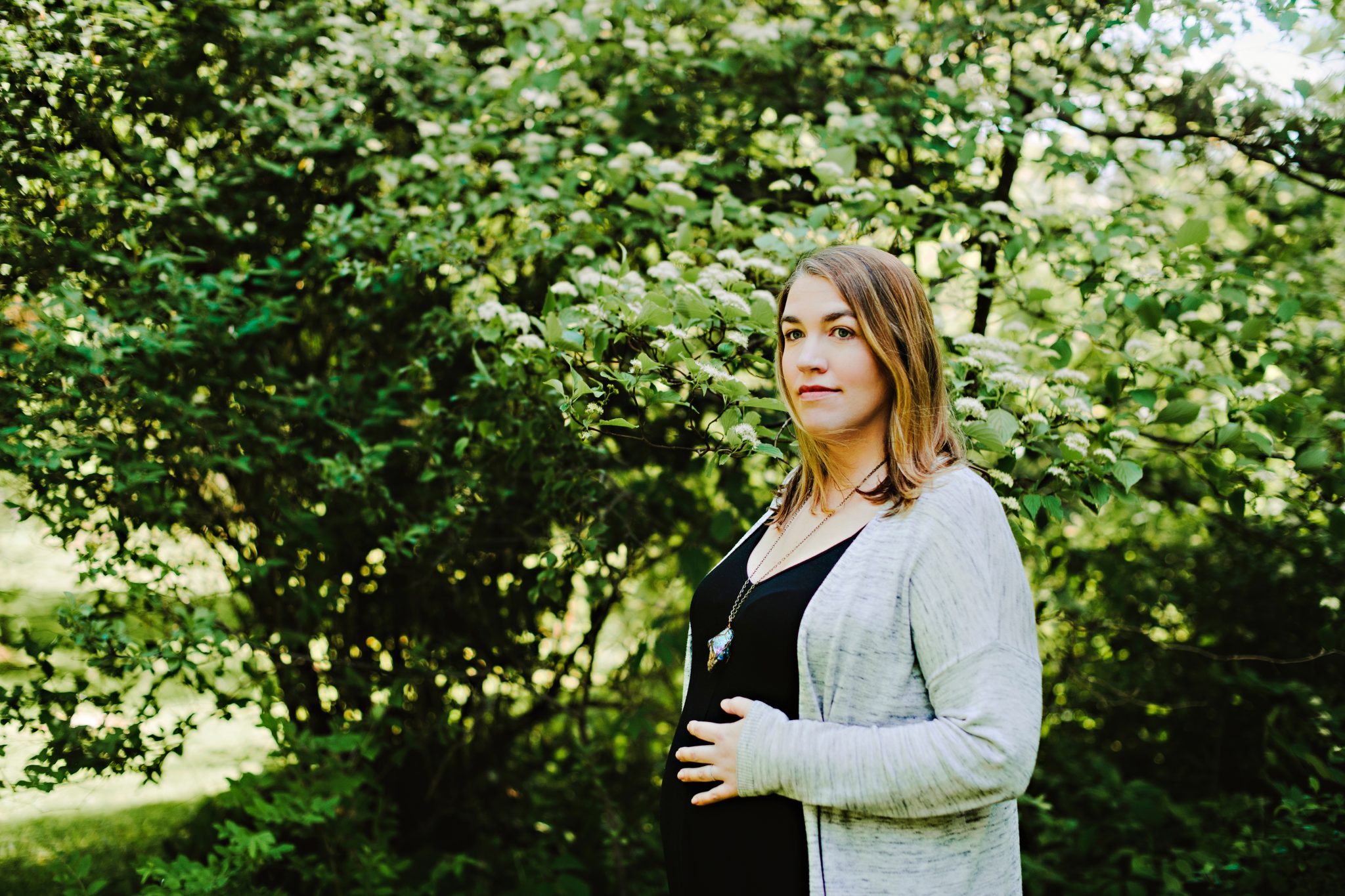On Apr. 28, I received my first dose of the COVID-19 vaccine.
It was a milestone that I had been eagerly anticipating for months — with any luck, the first step towards a return to normal life, whatever that may look like. Admittedly, it was also met with a lot of uncertainty and anxiety because I was also 19 weeks pregnant.
After suffering a miscarriage my first pregnancy, then enduring high-risk complications throughout the time I carried my son, pregnancy had already become an anxiety inducing experience for me. Toss in a global pandemic and misinformation surrounding the vaccine and well, let’s just say I know my way around Google.
There was very little, if any resources available regarding the long-term effects on pregnancy or the fetus. Pregnant people were not included in the initial trials, which is not at all uncommon. But we are living this in real-time.
The information was simply not available because the data did not exist yet.
“Ultimately, what we want is for people to make informed choices, and do what works best for them, right? But the information has been so confusing…And [it’s] not always really clear about what the actual recommendation is,” TK Pritchard, executive director of SHORE Centre said.
When I logged on to book an appointment through the Region of Waterloo, I was immediately prompted to speak with my health-care provider about the risks of the vaccine. I have a great relationship with my family doctor and an exceptional OBGYN who both provided as much information about the vaccine as they had available. But not everyone has that privilege.
Pritchard said that for those who don’t have access to health-care, consulting a doctor can be challenging. Additionally, health-care providers themselves have a wide variety of thoughts, feelings and opinions on the vaccines.
Seeking clarity on the issue can be a maze of confusion.
Not having access to the ever-changing information around COVID-19 and the vaccine provides an additional barrier.
“It’s also really difficult if English is not your primary language,” Pritchard said.
“The resources are not being translated, in many cases.”
I am lucky enough to have access to an abundance of information, a solid support network and compassionate health-care providers. Still, it felt like I was being faced with an impossible choice. There were real risks associated with injecting the vaccine but as I “did my own research” more and more pregnant people were ending up in the ICU.
“Pregnant people had almost no guidance, no information. And then suddenly… [pregnancy] was just listed in the highest risk category.” Pritchard said.
It was a recommendation that was made quite literally overnight.
“And it suddenly was urgent, right? And so that’s really difficult. Again, at a time when…you’re also trying to navigate a lot of other pieces around pregnancy,” they said.
My impossible decision now seemed obvious. I decided to opt for the vaccine. My son needs his mother and frankly, at just 34-years-old, I didn’t want to die.
My decision to get vaccinated was met with objection and opinion from those with conflicting views in my own community. I have been deemed a “bad mom” for injecting “poison” into my pregnant body.
“Something that people do a lot in conversations around pregnancy, is totally disregard the health of the pregnant person,” Pritchard said.
“People are, are not actually focusing on the health of the pregnant person, which also is … a symptom of a much broader conversation around how pregnant people do lose autonomy, and people only see the pregnancy and not them as a person.”
As if carrying a child during a pandemic wasn’t scary enough, my own community, other parents that I have known throughout my life, were making the experience harder. And I knew, I wasn’t alone.
Pregnant people are subjected to a daily sea of posts on the internet filled with fearmongering and misinformation, around the vaccine and COVID-19.
“Even without a pandemic, pregnant people are faced with … a lot of misinformation about pregnancy and difficulty in accessing that information,” Pritchard said.
“There are a lot of folks who hold complicated opinions around vaccinations and about COVID-19. And at the end of the day, it is a person who’s pregnant’s choice in terms of how they navigate their pregnancy and their body.”
The controversy surrounding the vaccination is just one way the pandemic has exasperated existing pressures on pregnant people.
In addition to the increased health risk posed by COVID-19, Pritchard said pregnant people and new parents did not expect to be navigating this experience on their own. The social distancing measures have meant there is a lack of in-person support from family and friends. Valuable resources like prenatal classes are only being held in a virtual setting. Support partners are often being turned away from ultrasounds and appointments.
Navigating the system has become increasingly difficult.
“We don’t generally prioritize the needs of women and trans people, which also then includes pregnancy,” Pritchard said. “Then, when we find ourselves in a pandemic situation, that is only made worse.”
I am now fully vaccinated. The experience was smooth and uneventful for me. I am confident I made the best decision for myself and my body—a personal choice that Pritchard feels all pregnant people are entitled to.
“Extend more kindness to one another and recognize that a pregnant person is … doing their best with the information that they have.”




Leave a Reply